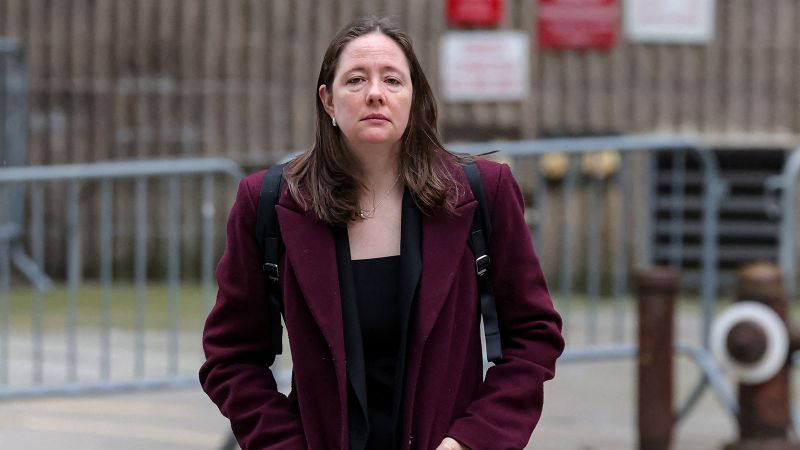Maurene Comey, a prominent Manhattan federal prosecutor, recently received abrupt notice of her termination from the United States Attorney’s Office. Her dismissal has garnered attention not only because of her career but also due to her familial ties as the daughter of James Comey, former FBI Director. Throughout her tenure in the Southern District of New York, Maurene carved a niche for herself, handling a spectrum of high-profile criminal cases, thereby following her father’s legacy in the judiciary field. However, her firing has raised questions about possible political motivations behind the decision.
Before her unexpected departure, Maurene Comey was actively involved in several significant legal cases. Notably, she prosecuted high-profile figures such as Jeffrey Epstein, the accused sex trafficker, and music mogul Sean “Diddy” Combs. Her legal pursuits extend beyond these cases; she has built a reputation as an attorney skilled in navigating complex criminal prosecutions, dealing with matters ranging from drug trafficking and gang violence to homicides. Such a track record demonstrates her dedication to justice and her effectiveness within the federal legal system.
A seasoned litigator, Maurene Comey has nearly ten years of experience serving as an Assistant U.S. Attorney in the Southern District of New York. Her resume reveals an impressive career trajectory; she previously served as a law clerk under Chief Judge Loretta A. Preska and worked as an associate at the prestigious law firm Debevoise & Plimpton. Her academic credentials are equally impressive, having graduated from Harvard Law School in 2013 and contributing to the esteemed Harvard Law Review. Earlier, she attained a bachelor’s degree in history and music from the College of William & Mary in 2010.
In a poignant email to her colleagues following her firing, Maurene advised them to maintain their courage in fighting against abuses of power, emphasizing that fear is a weapon wielded by tyrants. She articulated concern that her dismissal could create a culture of fear within the office, potentially compromising the integrity of prosecutorial decision-making. This public stance hints at the tumultuous atmosphere within her workplace and raises essential questions regarding the norms and values permeating the federal legal system, particularly in politically charged environments.
The reasons behind Maurene’s unexpected termination have remained murky. However, sources have suggested that her family connection to James Comey might have influenced the decision. Given James Comey’s history as a vocal critic of the Trump administration, his daughter’s role within the Justice Department may have become untenable. James Comey himself, who previously held roles such as Deputy Chief of the Criminal Division for the Southern District of New York and U.S. Attorney for the same district, continues to find himself in a politically charged spotlight. He is currently scrutinized for allegedly making false statements to Congress and has faced questioning regarding public posts interpreted as inciting violence against the president.
The political dynamics contributing to Maurene Comey’s dismissal are further complicated by ongoing investigations surrounding her father. James Comey has been central to discussions about the integrity of past US intelligence assessments, particularly concerning allegations that Russia aided in the election of Donald Trump. If these associations influence Maurene’s career trajectory, it reflects a broader context of the intersection between politics and law enforcement that often challenges the autonomy of judicial figures.
Adding to the intricacy, the timing of her firing coincides with ongoing pressures faced by the Trump administration relating to the Epstein case. The Justice Department’s recent announcement about the absence of a client list linked to Epstein, along with Trump’s dismissal of concerns surrounding the situation as “bullsh*t,” highlights the tense atmosphere regarding judicial accountability. Trump’s controversial remarks undermine the credibility of ongoing investigations and hint at friction between political power and legal integrity.
In summary, Maurene Comey’s unexpected firing acts as a lens through which the interplay of personal legacy, political affiliations, and legal responsibilities can be scrutinized. As the narrative unfolds, it serves as a stark illustration of the complexities and challenges faced by individuals navigating the fluctuating dynamics of law and politics in contemporary America.










